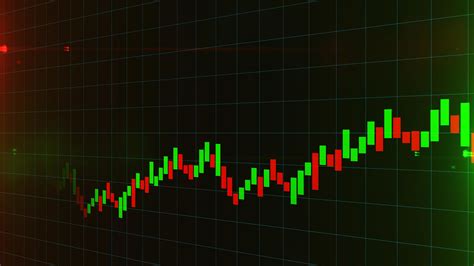In a world where financial markets can dictate the trajectory of economies, the recent chaos in stock markets across the globe has caught everyone’s attention. The trigger for this upheaval? President Trump’s bold move to impose tariffs and ignite a potential trade war on a global scale.
As news of sweeping tariffs spread like wildfire, panic ensued in markets worldwide. The S&P 500 took a nosedive, shedding over 10% within just two days last week. The volatility continued as further tariff announcements and whispers of possible delays circulated, sending shockwaves through Asia and Europe as well.
Experts often warn against solely relying on stock market fluctuations as an indicator of overall economic health. Share prices can fluctuate due to various factors such as technological advancements, consumer trends, or policy changes. However, there are moments when the market becomes a clear messenger of economic shifts – and these past few days have been one such instance.
Investors are resoundingly echoing concerns that the tariffs imposed by President Trump and subsequent retaliatory measures by U.S. trading partners will result in escalated prices, slower economic growth, and potentially trigger a global recession. It’s not just about reflecting fears; plummeting stock values can actually contribute to driving an economic downturn as consumers tighten their purse strings in response to shrinking investment portfolios.
Ryan Sweet, chief U.S. economist at Oxford Economics, points out that while short-term market turbulence may seem inconsequential, prolonged downturns can swiftly escalate economic repercussions: “if the drop in the stock market persists for a few weeks, a couple months, the economic costs begin to quickly mount.”
The brunt of direct tariff impacts is expected to hit low- and moderate-income individuals harder since they allocate more of their budget towards essentials like food and clothing – items subject to duties – with limited savings buffers against price hikes. Conversely, affluent earners will feel sharper pangs from market declines given their heavier reliance on stocks and other investments.
It’s important to recognize that beyond mere numbers flashing across screens lies a real-world impact on livelihoods – from family dinner tables deciding between essentials amidst rising costs to high net worth individuals reassessing investment strategies amid volatile markets.
Expert Insight:
“The current turmoil underscores how interconnected our global economy truly is,” remarks Dr. Emily Whitefield, an economist specializing in international trade dynamics.
Amidst this uncertainty looms the question: Will policymakers navigate these choppy waters adeptly enough to steer economies away from looming storms? Only time will tell how nations weather this turbulent period where every tariff decision reverberates far beyond trading floors into everyday lives around the world.



Leave feedback about this